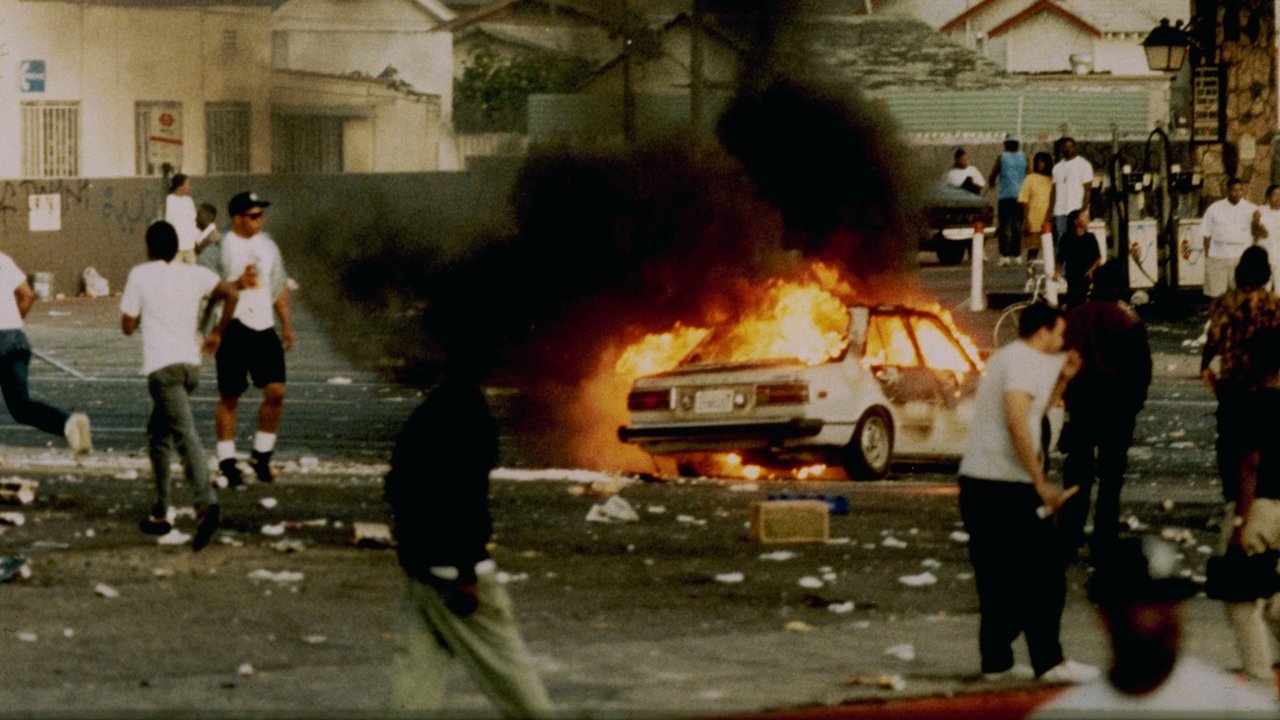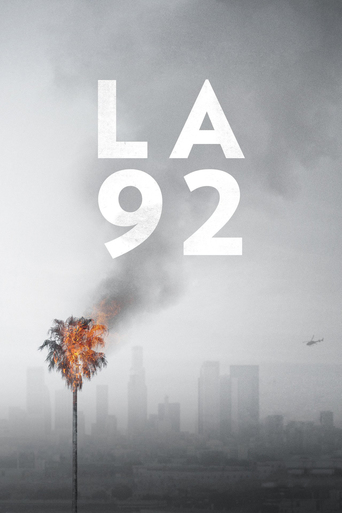Cleveronix
A different way of telling a story
Quiet Muffin
This movie tries so hard to be funny, yet it falls flat every time. Just another example of recycled ideas repackaged with women in an attempt to appeal to a certain audience.
Brenda
The plot isn't so bad, but the pace of storytelling is too slow which makes people bored. Certain moments are so obvious and unnecessary for the main plot. I would've fast-forwarded those moments if it was an online streaming. The ending looks like implying a sequel, not sure if this movie will get one
mikipryor-1
I thought the film was overly ambitious. They started w @ 2000 hrs of raw footage and edited in 9 months. There's no explanation or understanding of govt or police strategy (or lack thereof). It would work better as a series. The old vhs footage is hard to watch on the big screen. Compared w Ken Burns series on Vietnam, it's a poor second- although not a fair comparison (Burns worked for years and added contemporary interviews and @ 10+ hours). We are informed at one point that there were over 900 fires during the riots but are never shown where and when (a map with all the fires would have been good here). There is no information about grassroots or cooperative efforts by the community leaders. We don't see any community leaders interacting with police or government officials, although there must have been some meetings & conferences. We do see Maxine Waters calm a crowd but nothing about how the crowd was gathered - same with a group of peaceful Korean protesters. There had to be organizations that coordinated these demonstrations but there is no information regarding that.
Overall, a muddled, well-intentioned effort to discuss an ugly incident.
dennishuffington-95898
There's a saying: There's no time like the present. Except there is a time like the present, and National Geographic is premiering LA 92, a documentary that dug up every nook and cranny of 1992 in the City of Los Angeles, a time just like the present. LA 92's edge comes from the use of only archival footage tell its story. There are no interviews or experts, just raw footage of each and every catalyst, narrated by everyday people and news media alike. Even though I knew the outcome, I still sat in suspense because every second is authentic.About 35 minutes in, my stomach began to burn and I felt the same disappointment and resentment as the real people in the documentary. America hasn't recovered from Ferguson, Baltimore, and police brutality continues to deepen America's political and racial divide, just like the divide in LA 92, the divide that has always been in America. LA 92's tagline, The Past Is Prologue, couldn't be more fitting. Just as the LA riots preceded Ferguson, riots in Watts preceded LA's 92 riots.From the opening of LA 92, it is crystal clear, that racism and police brutality have long been intertwined. We see a police department that not only criminalizes a group of people but also fails to protect that same group of people. The LAPD has long been tarnished by accusations of racism, and there is enough footage in LA 92 to uphold those accusations. In their own words, LAPD officers admitted they performed actions that were "violent" and that "police work can be brutal." The smoking gun was the admission that, "In Los Angeles, the chokehold is associated with death for blacks."One officer's testimony in the Rodney King Trial sounds like the blueprint for George Zimmerman's testimony during his trial for the death of Trayvon Martin in 2012. Both Zimmerman and the officer defended themselves by saying they were so scared of being killed by their victims that they acted violently and brutally in self defense. This mindset that African- Americans are inherently violent is the dangerous societal side effect of the systematic criminalization of African-Americans that has led to the murders of Michael Brown, Freddie Gray, Philando Castile, Trayvon Martin, Alton Sterling, and countless other African-Americans.At one point of LA 92, someone shouts out "Black lives matter!" long before the hashtag. That is the importance of LA 92. This documentary is a case study that examines a system and not just a city or a year. LA 92 could easily be BALTIMORE 2015 or FERGUSON 2014. The buildup, explosion, and aftermath were all the same, yet we still have the same problems. The hysteria we see in LA is the same hysteria I witnessed firsthand living in St. Louis during 2014. I remember the boarded up storefronts and closed off highways. I also remember the burning buildings in Ferguson and military tanks parked in random locations, ready to pushback against any resistance.Did we learn anything from any of those events? The answer is yes, but there is still much more to learn and that is what makes LA 92 a must-see. LA 92 premieres at Tribeca Film Festival on April 21, followed by a screening tour including St. Louis on April 29, before premiering on National Geographic on April 30
David Massey
I was 13, living in an affluent New England town, and totally oblivious to Los Angeles in 1992 (beyond my life-long cinema obsession). Looking back, the LA Riots influenced America (the music, the election, film, our language, our style, and our acceptance or rejection of diversity) more than any other event in the 1990's. Even having lived in LA for a few years (only about a decade later), I never really understood the impact of the riots on that city until I saw this. The style of this doc is 'manipulation' but, if you can get pasts some of its tasteless pandering, seeing this footage (chronologically shown in the film), was absolutely eye-opening. I never really experienced racism until I moved to Los Angeles in my 20's and there really was a feeling that I could only liken to the friction that causes earthquakes (coincidentally) within the culture of that city; it's a bloody mess of ambition, failure, inequality, and segregation (racial & financial). The film sets up the social climate with the Watts riots (which, oddly, I feel more informed about) and all but suggests that we're due for another social catastrophe and, by all accounts, I can't say that I disagree.
SnoopyStyle
This gives some quick background starting with the '65 Watts riots. There is political background. Once we get to Rodney King and Mrs Du's killing of Latasha Harlins, the riot starts to build. It is a lot of the old footage stitched together. It does mean the quality is lower with plenty of shaky camera work. However, it does give a relatively full accounting of the events and delivers the immediacy of the moment. The emotional climax is Rodney King's pleading news conference. This is a solid documentary of that time and the riot.

